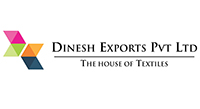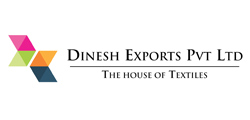OEKO-Tex certified woven fabrics are increasingly becoming the favorite product of apparel brands to create their products. The apparel industry has become more demanding with regards to purchasing certified textile products. To become a successful apparel brand, it is important for you to face the growing demand of the customers for certified products. OEKO-Tex certification is one such sustainability certificate that can ensure your customers get what they demand. In this article, we are going to discuss everything you need to know about OEKO-Tex certified woven fabrics.
What is OEKO-Tex Certification?
OEKO-Tex certification labels and confirms the human-ecological safety of textiles products from all stages of production, like the raw materials, fibers, yarns, fabrics, and ready to use end product along the textile value chain. It also attests for the social and environmental conditions in production facilities.
The Standard 100 by OEO-Tex
The Standard 100 was introduced by OEKO-Tex in 1992. It certifies the adherence to specifications of the standard by the same name, a document of testing methods and limit values for potential harmful chemicals. This testing is applied to textile materials under any stage of production as stated above.
What is the objective of Standard 100?
The main objective of Standard 100 is to ensure the consumers that the labeled textile products have undergone laboratory testing for a wide range of harmful substances, and that the content of those substances remain below the limit values established by the OEKO-Tex Association.
What are the requirements of obtaining certificate?
The certificate needs to be updated every year based on new scientific information. It is applied through their website.
What are the prerequisites?
A clothing item can only be given a Standard 100 certification if and only if it passes and complies with all the components of the criteria mentioned in the guidelines.
Extent and requirements of Oeko-Tex testing for harmful substances depend on the intended use of a textile product. There are four product classes:
- Product class I – Items for babies and infants (up to 36 months of age)
- Product class II – Items with direct prolonged or large-area skin contact
- Product class III – Textiles without or with little skin contact
- Product class IV – Furnishing materials for decorative purposes (curtains, table linen, carpets, etc.)
Product class I requirements are more rigorous for most potentially harmful substances, and there is an additional test for saliva resistance.
Laboratory tests in OEKO-Tex Standard 100
The test criteria and limits are upgraded every year and the information is published on their official website. These parameters include the substances regulated or banned by the law and other unregulated and harmful substances.
Textile products are tested for their content of several hundred individual substances from 17 groups of chemicals. The standard takes into account:
- Important legal regulations (e.g. banned Azo dyes, formaldehyde, pentachlorophenol, cadmium, nickel)
- Requirements of Annexes XVII and XIV of the European Chemicals Regulation REAChand of the ECHA SVHC Candidate List that are assessed to be relevant for fabrics, textiles, garments or accessories by expert groups of the Oeko-Tex Association
- US Consumer Product Safety Improvement Act(CPSIA) requirements regarding lead
- Numerous other environmentally relevant substance classes
- Numerous substances known to be harmful to health or environmentally relevant but not yet subject to any regulation
What is the prevalence and awareness around OEKO-Tex Standard 100?
This certification has the largest prevalence worldwide for textile products tested for harmful substances. There are more than 10,000 manufacturers in almost 100 countries currently participating in the OEKO-Tex certification. They have issued more than 160,000 Standard 100 certificates for textile products from all stages of production.
According to a consumer survey by GfK in 2006, the label ‘Confidence in Textiles’ has a brand recognition (aided recall) level of over 46% in Germany. A consumer survey by BBE Retail Experts carried out in seven European countries (Austria, Switzerland, France, Italy, Spain, Portugal, Netherlands) in 2008 found an average recognition level of 42% for the Oeko-Tex label. In a 2012 survey with 3349 participants from 13 countries (Germany, Austria, Switzerland, Spain, Italy, France, Portugal, Great Britain, Denmark, Poland, Russia, Turkey, China), the Cologne Institute for Research in Retail Issues (IFH) found a mean aided recall level of 42% as well.
Conclusion
If you are an apparel brand who wants to satisfy your customers growing need for sustainable products. Then, the Standard 100 by OEKO-Tex certification is an ideal choice. At Dinesh Exports, we manufacture OEKO-Tex certified woven fabrics in all types of gsm, fabric content, weave, etc. We can meet your varying needs to meet your woven fabric requirement. For enquiries, please contact us.




